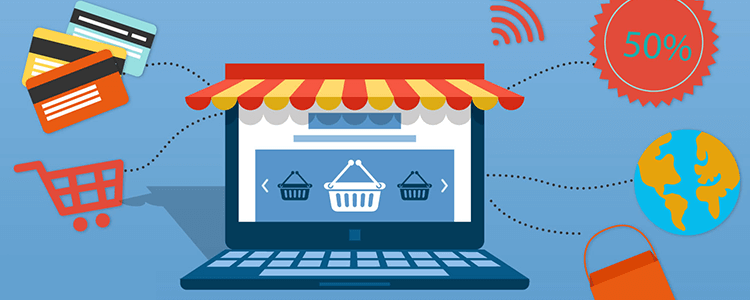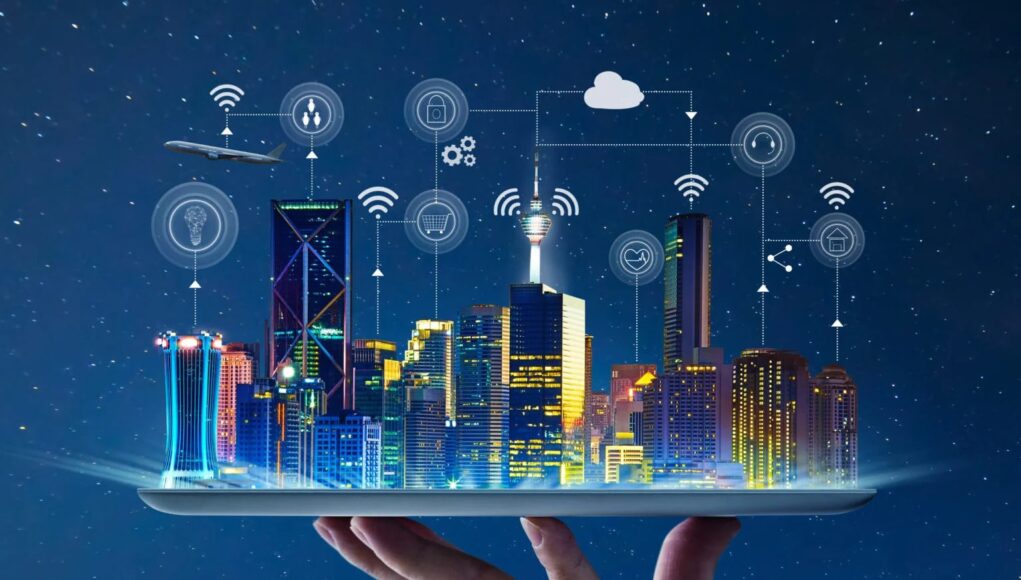The real estate industry has undergone a remarkable transformation in recent years, thanks to advancements in technology. From online listing platforms to artificial intelligence-powered chatbots, various technological innovations have revolutionized the house-selling process.
These advancements have not only expanded the reach and visibility of properties but also enhanced customer experiences and streamlined transaction processes. In this blog post, we will explore the impact of technology on real estate and delve into the key technological advancements that are shaping the future of the industry.
Online listing platforms: Expanding reach and visibility

Online listing platforms have emerged as a game-changer in the real estate market. These platforms allow sellers to showcase their properties to a global audience, expanding their reach beyond traditional marketing channels. With detailed property descriptions, high-resolution images, and even virtual tours, potential buyers can get a comprehensive understanding of a property without physically visiting it. Moreover, these platforms provide advanced search filters and algorithms that help buyers find properties that match their specific criteria, making the house-hunting process more efficient and convenient than ever before.
Virtual tours: Immersive experiences for potential buyers
Gone are the days when buyers had to rely solely on static images or limited property descriptions to evaluate a house. Virtual tours have taken the house viewing experience to a whole new level. Through the use of 360-degree cameras and virtual reality (VR) technology, potential buyers can now explore properties remotely in a highly immersive and interactive manner. They can virtually walk through each room, examine the layout, and even get a sense of the property’s scale. This not only saves time and travel expenses but also allows buyers to make more informed decisions without physically being present at the property.
AI-powered chatbots: Streamlining customer interactions and inquiries
Customer interactions and inquiries play a vital role in the house-selling process. However, handling a large volume of inquiries can be time-consuming and overwhelming for real estate agents. This is where AI-powered chatbots come to the rescue. These intelligent bots can engage in real-time conversations with potential buyers, answering frequently asked questions, providing property details, and even scheduling property viewings. By automating these interactions, chatbots free up valuable time for real estate agents to focus on more complex tasks and ensure a prompt and personalized experience for buyers. To learn more about how technology is transforming the real estate industry, check out Gordon Buys Homes in Grand Rapids, Michigan at https://gordonbuyshomes.com/we-buy-houses-grand-rapids-michigan.
Big data analytics: Data-driven insights for pricing and marketing

Data has become a valuable asset in the real estate industry, and big data analytics has transformed the way properties are priced and marketed. By analyzing vast amounts of data, including property sales history, neighborhood trends, and market conditions, real estate professionals can gain valuable insights into property values and market demand. This enables them to set competitive prices, identify potential buyers, and tailor marketing strategies accordingly. Moreover, big data analytics can help predict future trends and patterns, empowering sellers and buyers to make well-informed decisions based on data-driven forecasts.
Blockchain technology: Secure and transparent property transactions
Traditionally, property transactions have involved numerous intermediaries, paperwork, and potential risks. However, blockchain technology has the potential to revolutionize this process by providing secure and transparent transactions. Blockchain is a decentralized and tamper-proof digital ledger that records all transactions and ownership details. By eliminating the need for intermediaries, such as lawyers or escrow agents, blockchain streamlines the transaction process, reduces costs, and enhances security. It also ensures transparency by making transaction records publicly accessible, thereby reducing the risk of fraud and disputes.
Augmented reality: Visualizing property customization and renovations
Augmented reality (AR) is transforming the way buyers envision their future homes. With AR technology, potential buyers can overlay virtual elements onto the real world, allowing them to visualize property customization and renovations before making a purchase. For example, they can virtually place furniture in a room or experiment with different paint colors on the walls. This not only helps buyers assess the potential of a property but also fosters a deeper emotional connection, increasing the likelihood of a successful sale. AR technology empowers buyers to make more confident decisions and accelerates the buying process.
Smart home devices: Enhancing property value and buyer appeal
Smart home devices have gained popularity in recent years due to their ability to enhance convenience, security, and energy efficiency. These devices, such as smart thermostats, security systems, and lighting controls, not only make homes more comfortable but also increase their value and buyer appeal. Sellers can leverage these devices as selling points to attract tech-savvy buyers and differentiate their properties from the competition. Moreover, smart home devices offer the potential for remote property management, allowing sellers and buyers to monitor and control various aspects of the property from anywhere, adding an extra layer of convenience and peace of mind.
Automated transaction processes: Faster and more efficient sales
Technology has significantly expedited the transaction processes involved in buying and selling properties. Automated systems and digital tools have replaced cumbersome paperwork and manual processes, enabling faster and more efficient sales. For instance, digital signatures and online document management platforms streamline the signing and exchanging of contracts, eliminating the need for physical paperwork and postal services. Additionally, online payment platforms facilitate secure and instant financial transactions, ensuring the timely completion of sales. These automated processes save time, reduce administrative burdens, and contribute to a smoother and more seamless real estate transaction experience.
Machine learning algorithms: Personalized property recommendations for buyers

Machine learning algorithms are powering personalized property recommendations, making the house-hunting process more efficient and targeted. By analyzing a buyer’s preferences, search history, and behavior patterns, these algorithms can suggest properties that align with their specific needs and preferences. This not only saves buyers from scrolling through countless listings but also increases the chances of finding the perfect match. Furthermore, machine learning algorithms can adapt and improve over time, refining their recommendations based on user feedback and data, leading to even more accurate and tailored suggestions in the future.
Conclusion: The future of real estate in the digital age
As technology continues to advance, the real estate industry is poised for further transformation. The impact of online listing platforms, virtual tours, AI-powered chatbots, big data analytics, blockchain technology, augmented reality, smart home devices, automated transaction processes, and machine learning algorithms is reshaping the way properties are bought and sold. These technological advancements are not only improving the efficiency and convenience of the house-selling process but also empowering buyers and sellers with valuable insights, personalized experiences, and enhanced security. As we embrace the digital age, the future of real estate looks promising, exciting, and full of opportunities for both buyers and sellers alike.





